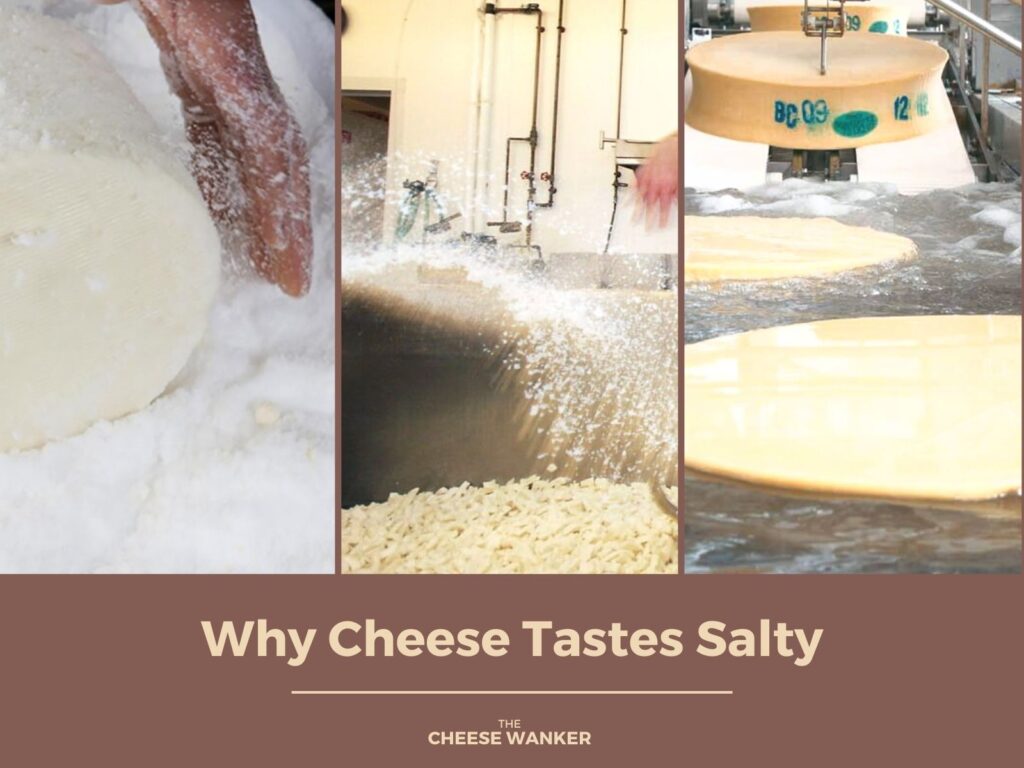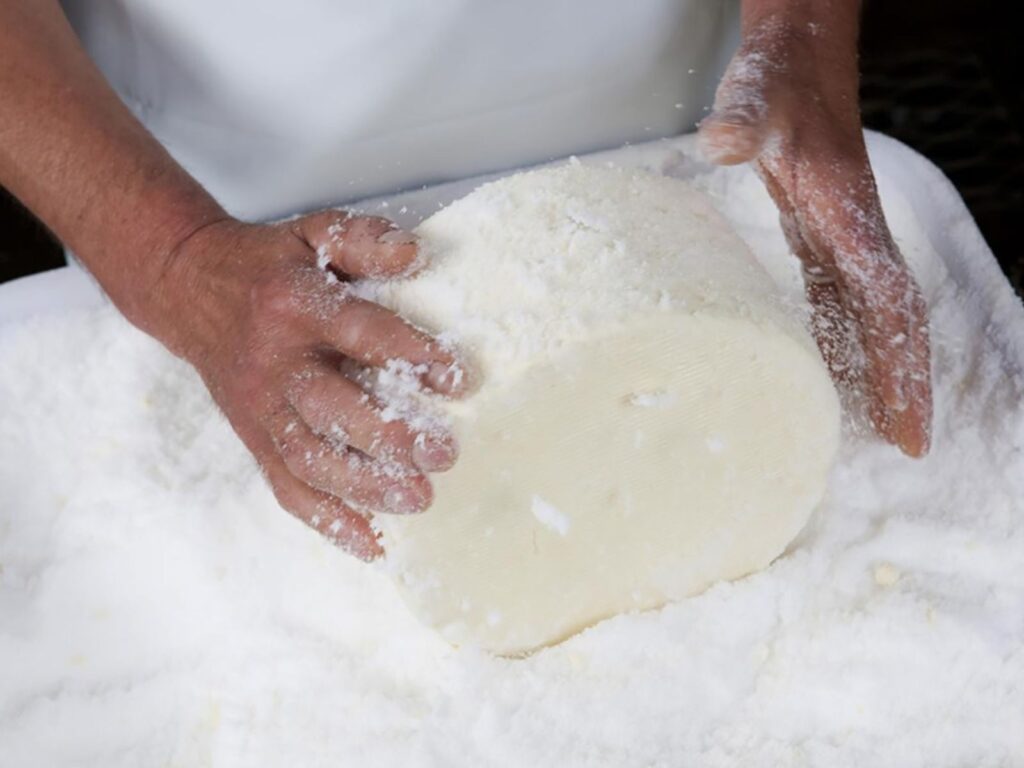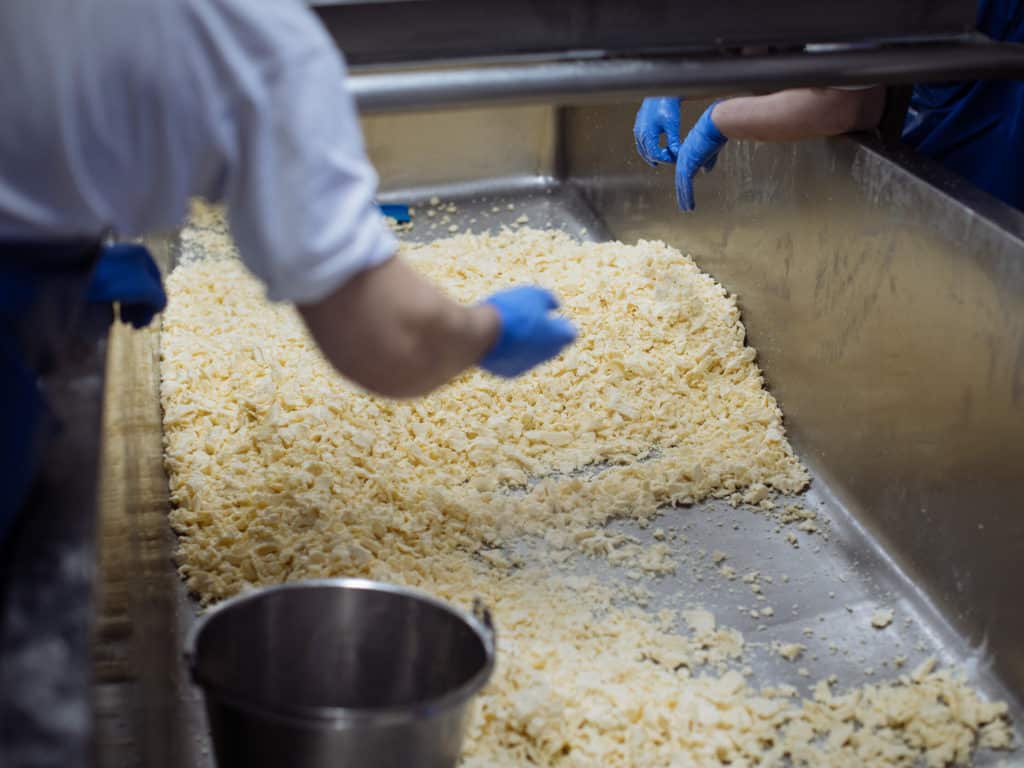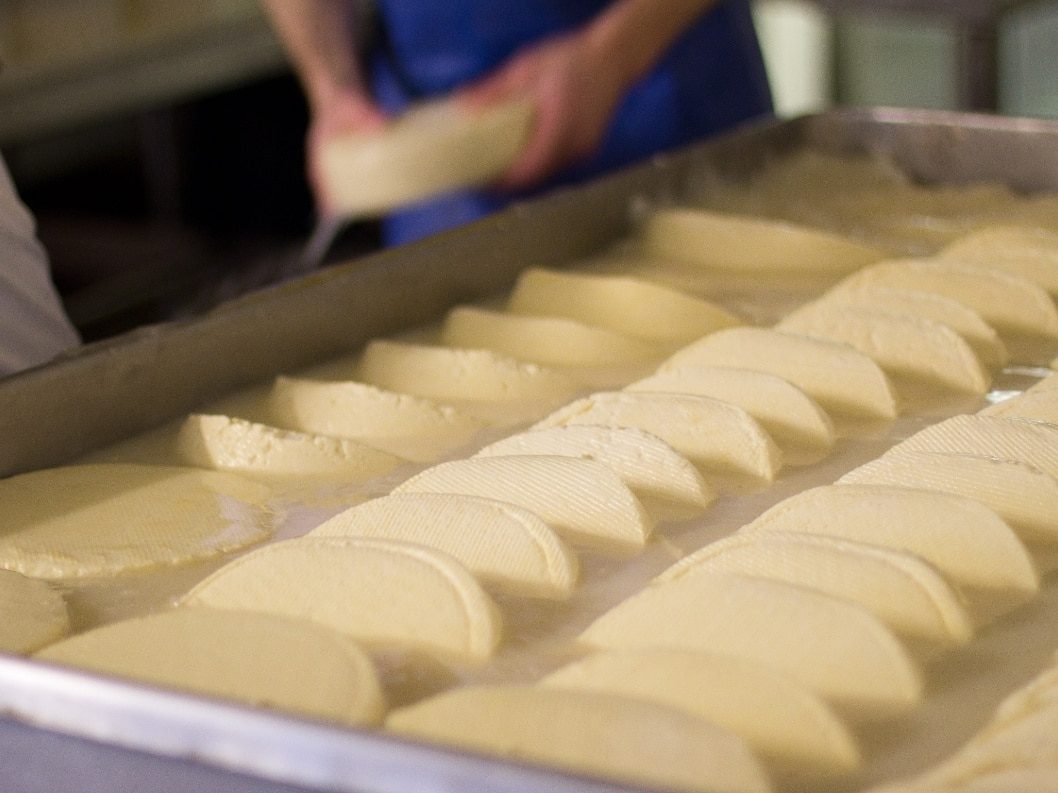The flavour of cheese varies tremendously depending on the type of cheese. However, one constant is usually the salty taste. Do you know why cheese tastes salty? Read on to learn why salt is such an important ingredient in cheesemaking.

SEE ALSO: Our complete list of ingredients that you need to make cheese →
What you need to make cheese
If you’ve been with us for a bit, you know that it takes 4 ingredients to make most cheeses. Namely, those are milk, culture, rennet and salt. We’ve talked about rennet and raw milk before. But today, let’s shine the spotlight on salt.
More than just flavour
Without a doubt, salt is an essential ingredient in cheesemaking. Obviously, it adds flavour. But, the reasons why cheesemakers add salt to their cheese go well beyond that.
Firstly, salt assists in drying the curds during the draining process. Effectively, it helps separate more whey (liquid) from the curds (solids). As a result, the curd comes smaller and drier.
Control over cheese maturation
However, the main reason why cheese is salted is to slow down the bacterial culture and control the process by which lactose converts into lactic acid. This gives the cheesemaker more control over the maturation of the cheese.
In addition to this, salt assists in natural rind formation and inhibits any potentially harmful bacteria and fungi when used as a brine wash or bath.
Which leads us to our next topic. How is salt used in cheesemaking?
Salt in cheesemaking
There are largely three ways in which salt can be used.
Dry salting

Dry salting involves rubbing salt all over the surface of the cheese. This is used to make mould ripened cheeses such as Camembert.
Milling

Another method is by milling. When making Cheddar, cheesemakers mill the curds to break them down and mix in salt before transferring to the mould for pressing.
Brining

Finally, salt can be dissolved in a brine solution. The cheesemaker then submerges entire wheels of semi-hard and hard cheeses in the brine solution.
What type of salt to use
One last consideration is what type of salt you should be using. While iodised salt might be good for your health, it is terrible for cheese. Actually, it will inhibit the starter culture and bring maturation to a halt.
All hail Gavin Webber
I want to wrap up this post with a huge thank you to Gavin Webber from Little Green Cheese. You have inspired an entire generation of cheese lovers to make cheese at home. And shared so much of your wisdom with all of us.
So, have you tried to make your own cheese? Drop me a comment below.



